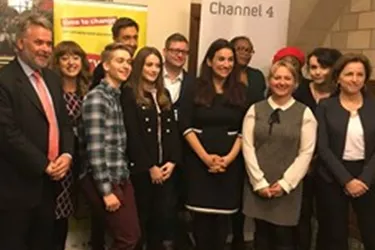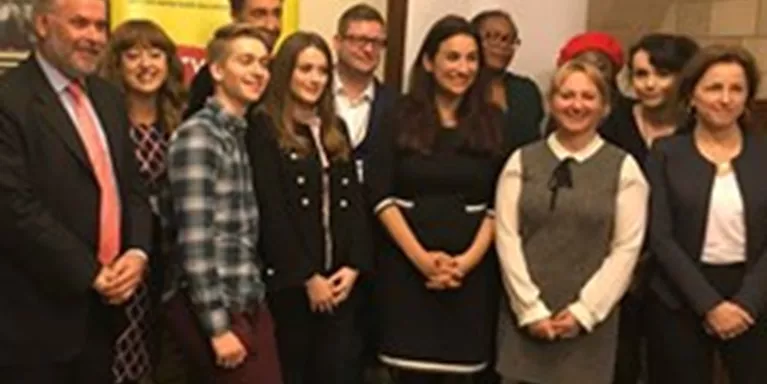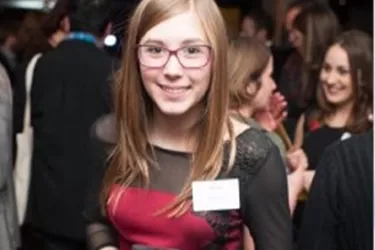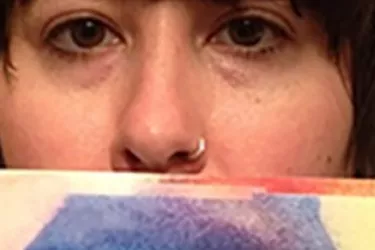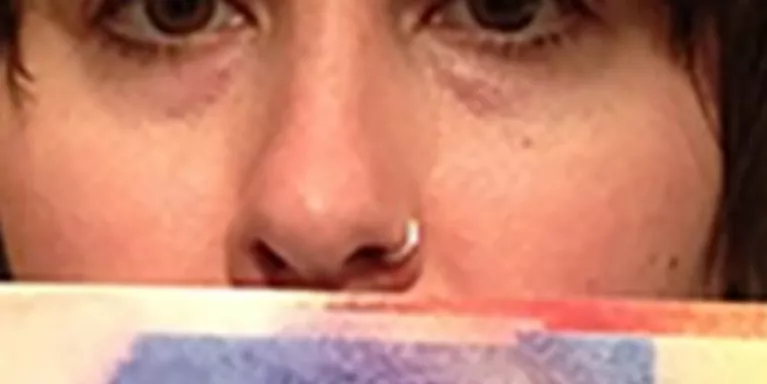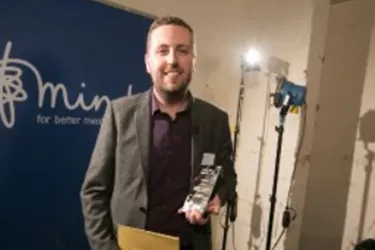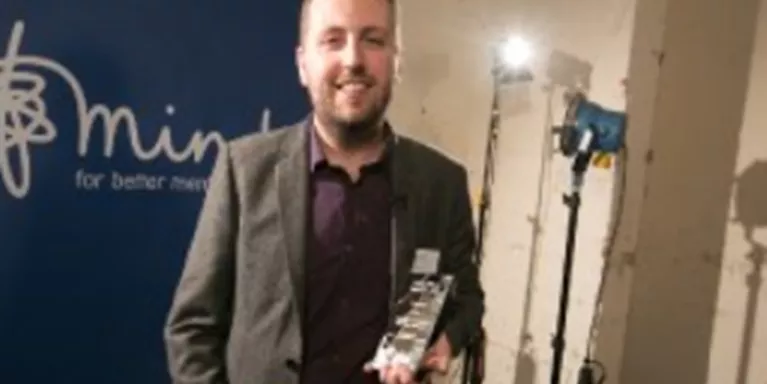My Mind Media Awards experience
Last year, presenter Ben McGrail wasn't sure if he should enter the Mind Media Awards. He did - and ended up taking home a Radio award for a compelling programme on talking about suicide. Ben blogs about his experience.
I’ll be honest – when I saw that Mind organised some national media awards I thought two things in the following order:
1. Ooh – I’ve done lots of mental health coverage…maybe I should enter…maybe I’d win!
2. Actually – I present a show on one of the smallest BBC Local Radio stations in the UK…I haven’t got a chance in hell.
But, against my better judgement, I did enter – and thank goodness I did. I can honestly say that winning a Mind Media Award is one of the highlights of my career. It’s not often you get the chance to be compared against the likes of BBC Radio 4 and LBC but that was what happened on the night of 16th November 2015.
"For too long there have been assumptions, stereotypes and stigmas."
You don’t go into these things expecting to win against competition like that, but on that night I felt an overwhelming sense of calm and confidence…it was a very strange feeling. I think I’d accepted that this was a reward for what had been a difficult couple of years personally. As I said in my acceptance speech, I’d struggled with my own mental health through the course of putting together a lot of coverage on it. It was the first time I’d publicly talked about this and it was because of the atmosphere of the event that I felt confident to do it. It’s a wonderful night that you could use a plethora of adjectives to describe: inspiring, emotional, funny, educational…all these things and more.
My award, now sitting proudly on my piano at home (which sounds very grand…but in truth is a glorified sideboard having not been played for about fifteen years), was won for a programme I produced and presented in May 2015. The show focussed on the issue of suicide in Somerset:
- Why were there more people taking their lives in the county than dying in road accidents?
- Why did people find it so hard to discuss suicide?
- Why was such a small proportion of the Clinical Commissioning Group’s budget set aside for mental health treatment in the county?
I’d be lying if I said it was an easy programme to pull together – it really wasn’t. I had to persuade a lot of people that they could put their confidence in me to talk about suicide for three hours of live radio without straying into very dangerous ground! Ultimately though, I got buy-in from everyone involved and that’s largely thanks to the wonderful team at Mind in Taunton & West Somerset who hosted us that morning and helped me make contact with the case studies who provided my listeners with some captivating interviews to consume that morning.
I knew it was a special programme but did it have the potential to be award-winning? Ultimately there’s no way you can know unless you enter – and I urge you to enter. Whether you work in broadcast, print or online, if you’re passionate about mental health and you’ve put together something you’re proud of that deals with the issue then you should put yourself forward. The Mind Media Awards exist to celebrate people like you – people who care about cutting to the truth about mental health. For too long there have been assumptions, stereotypes and stigmas about depression/anxiety/suicide but your coverage has helped to change that. Whether your piece was consumed by hundreds of people or thousands of them, what matters is that it was read, listened to or watched and it will have had a positive impact.
So whether you work for a big, national broadcaster or a small, local media organisation; whether you’re a blogger, vlogger, producer, presenter or writer – these awards are for you. They’re designed to give you the credit you deserve for spreading positive messages about mental health and, ultimately, helping people with one of the most difficult things they have to cope with in their lives.


Information and support
When you’re living with a mental health problem, or supporting someone who is, having access to the right information - about a condition, treatment options, or practical issues - is vital. Visit our information pages to find out more.
Share your story with others
Blogs and stories can show that people with mental health problems are cared about, understood and listened to. We can use it to challenge the status quo and change attitudes.










